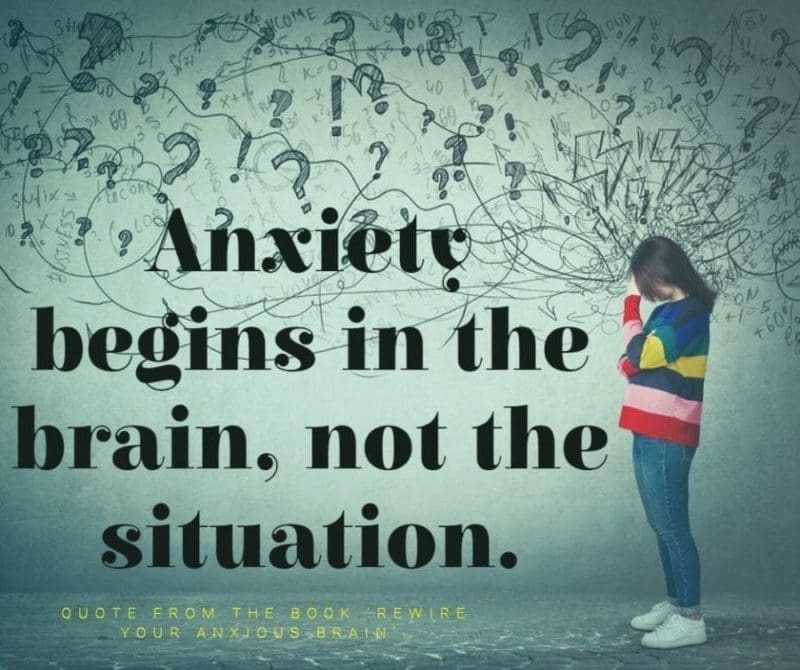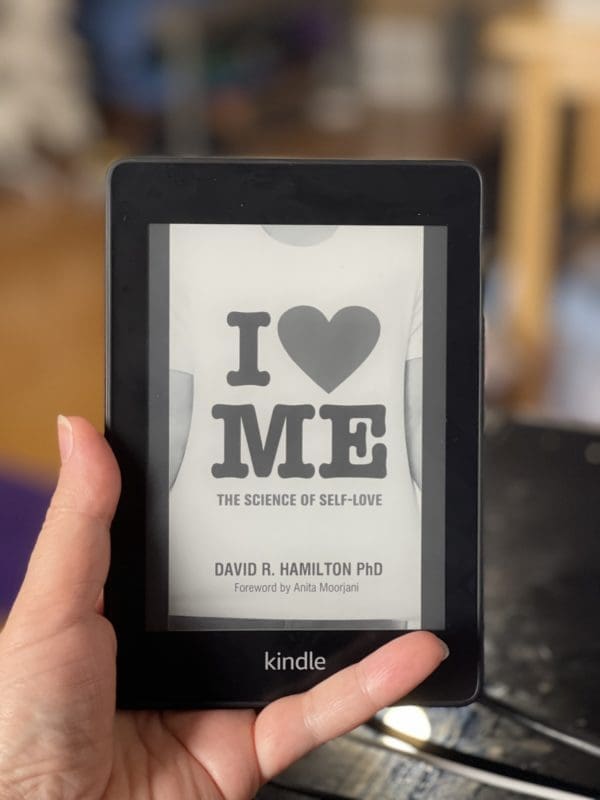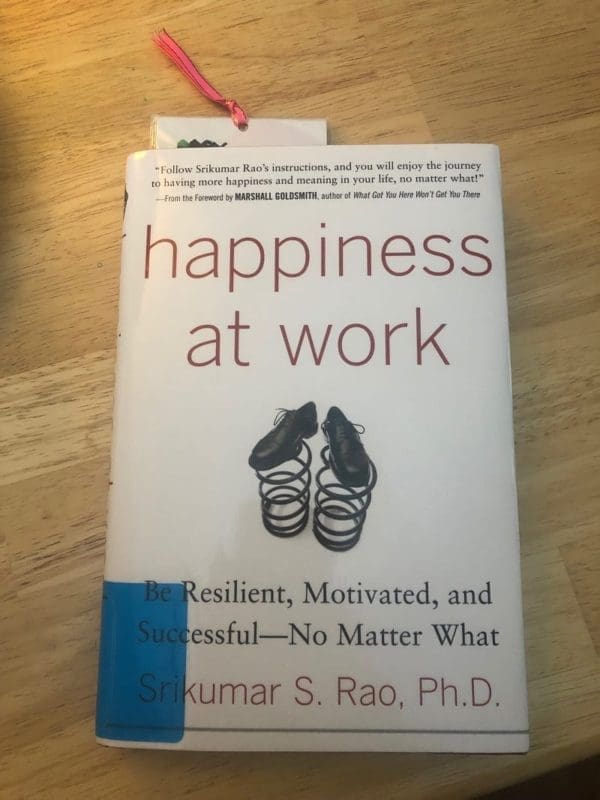I’ve dealt with anxiety off and on for the past decade or so. I’ve talked about that before in another book review on anxiety, but health anxiety has been something new for me in the past year. I’ve come to a point where I’m worrying about every single thing that doesn’t feel right, and I need it to stop. That’s why I picked up the Overcoming Health Anxiety book. It’s written by two people with plenty of credentials – Katherine Owen and Martin Antony – and it has some really good reviews, so I thought I would give it a try as my first health anxiety book.
I’ve Been Worrying About My Health Constantly
Health anxiety wasn’t really an issue for me before this past year. Once in a while, I would worry about something, but not constantly, which is what I’ve been doing lately. I’ve had cysts, IBS, stomach problems, alopecia, GERD, and thyroid problems this past year. It just keeps coming. Because of all this, I wake up paying too much attention to my body and spend the whole day with that kind of ridiculous focus.
I remember when my Hypothyroidism wasn’t diagnosed yet and I was constantly having aches and pains all over my body. I wasn’t as anxious about my health then as I am now. I just kind of wrote it off as ‘this too shall pass’ and went on with my days. Now, I’m worried that my symptoms mean something much worse than simply my hormones or thyroid is out of whack.
The problem is that this kind of worry and focus exasperates the symptoms. I know this. When my mind does relax and I focus on something else, my symptoms will lessen or go away. But when I start to panic, the symptoms take on a whole new level of pain or annoyance.
Moreover, my health anxiety causes me to be anxious in general. I’ve talked about how my anxiety was mostly cortex-based in my Rewire Your Anxious Brain review. Now, a lot of my anxiety is amygdala-based. I get anxious for no apparent reason. I can be relaxing and looking out a window and get anxious. With all this worry and anxiety, I’m wiring my subconscious to freak out even when I’m not thinking about things that cause me to freak out.
In short, I need to rewire the way my brain is working when it comes to fear of health problems. That’s why I picked up Overcoming Health Anxiety. I hoped it would help.
I Saw Myself Everywhere In The Book (It’s Obvious I Have Health Anxiety)
Even if I didn’t want to admit that I’ve been having healthy anxiety, I would have had to after reading many things in the book that were totally relatable.
For instance, people with high levels of health anxiety worry about contracting a specific disease. For me, it’s cancer. Every single pain in my body, from head to toe, leads me to think I have one disease – cancer. I think because so many people in my family have died of cancer and I’ve been focusing on it a lot these last few years. It’s become a permanent fixture in my brain, so when something goes wrong, it’s where my mind goes first.
There were plenty of times that I found myself checking off every box in regards to what health anxiety looks like. Things I say, do, and think were all there.
I even cringed as I read about emergency visits and how people with health anxiety will end up visiting the hospital when it’s necessary. I did this not long ago. I was having some mild pain in my stomach and bad acid reflux, and it had lasted for a few days. Because I had been dealing with so much pain in my lower abdomen over the past few months (an ovarian cyst) I went to emergency. The doctor seemed slightly annoyed with me, but I had convinced myself that I had given myself an ulcer with all the worry I was having. He ‘diagnosed’ me with a pulled muscle in my stomach and sent me home. It was such a waste of time – on both our ends – and it’s not something I want to do again.
Health Anxiety Comes With Some Standard Ways Of Thinking And Behaving
Sometimes we believe that our thoughts and emotions are real, objective, or factual, and forget that they are only mental content. – Quote From Overcoming Health Anxiety
Overcoming Health Anxiety will help you see that your way of thinking and behaving is pretty standard when it comes to health anxiety.
It was kind of reassuring to know that I’m not the only one freaking out about certain things and thinking about my health in a way that isn’t helpful.
It was also helpful to see that the way I’ve been thinking and behaving is how health anxiety manifests, and I need to change those specific thoughts and behavior in order to stop having that health anxiety.
For instance, there is a section where the authors talk about how health anxiety affects your loved ones, and reading about my behaviors and how it may affect my husband made me realize that I’ve been putting him through a lot with my health anxiety. I’m constantly looking for reassurance from him, just like the book says people with health anxiety do, and now I can see how stressful that would be for him (he hasn’t told me so, but I’m sure it is) and how unhelpful it is for me.
Overcoming Health Anxiety Covers The Big Elements Of Anxiety
In the book and through the exercises, you will go over the physical sensations, thoughts, and behaviors that come with health anxiety.
Physical Sensations
This was a big one for me. Learning that physical sensations don’t always mean something horrible was an eye-opener.
For instance, I don’t worry about an itch or twitch that I get. Those are pretty normal things that I know will pass. But, this book helped me see that there are a lot of normal aches, pains, and others that happen in my body all the time that I don’t give much attention to.
I pick and choose what sensations I deem to be ‘cancer’ or something else. In other words, I’ve been labeling normal sensations and happenings in the body as extremely dangerous when other people would just view them as normal and wait for them to pass.
A lot of those sensations are reflective of my past, for example, sick family members having the sensations.
Thoughts
I have been getting stuck in excess worry around my health. I’ve been interpreting symptoms as more dangerous than they are and Overcoming Anxiety helped me see that.
It helped me admit that my symptoms likely have a less dangerous cause than what I’m making them out to be.
It helped me loosen my grip on the thought ‘it could be cancer’ so that I can think things like ‘it probably is just GERD or my thyroid’ – both of which I can manage.
I also realized that my thoughts such as ‘the damage is done and it’s probably too late,’ and ‘maybe the doctors are missing something,’ are all just manifestations of my anxiety and not necessarily true.
Behaviors
I learned that my response to thoughts, beliefs, emotions, and sensations is extremely important.
For instance, the more I allow myself to pay attention to the things that make me anxious, the more I keep my anxiety alive. It’s important to choose to do things that help me draw my attention away.
I also learned that checking google for symptoms is something I need to stop. It makes my health anxiety a million times worse every single time I do it.
And I learned that avoidance is very bad for me. I need to face things head-on or I will get more and more anxious as the days go on.
You learn many things in Overcoming Health Anxiety, such as:
- How cultural factors play a part in your health anxiety.
- How past illnesses or deaths impact your health anxiety.
- Strategies that will help motivate you to change.
- How your health anxiety is impacting yourself and others.
- How life would feel if you weren’t constantly worried about your health.
- How to create goals to overcome your health anxiety.
- Why the way you interpret situations matters so much.
- Why exposure therapy is important. (This is really good if you’ve been avoiding things because of your anxiety. For example, I’ve been avoiding watching medical dramas.)
- Why fast relief from your anxiety can be addictive and perpetuate anxiety. For instance, calling the doctor for every little pain.
- How constant reassurance impacts your own logical reasoning.
And more.
One other thing I found very helpful was the concept of complete response prevention. It essentially means that you stop doing the things that perpetuate issues.
For instance, I’ve been constantly seeking reassurance from my husband that things are probably related to my thyroid and not cancer. Stopping this completely has lessened my health anxiety quite a bit. It’s amazing how clearly I can now see that safety behavior, which I thought was helping my health anxiety, was actually perpetuating my health anxiety.
You can also do gradual response prevention, but I’ve found the act of ending it altogether to be much more effective.
My Doctor Isn’t Taking Me Seriously
I believed this thought in a big way, and I’m still working on overcoming it. I believed that I wasn’t making it clear how much pain I felt or how many symptoms I was feeling and she wasn’t getting the whole picture or understanding how serious these things felt to me.
But, one quote from Overcoming Health Anxiety is helping me to trust my doctor a little more.
…unless you also have a medical degree, your doctor is probably more skilled at the process of diagnosis and treatment at her worst than you would be at your best. – Quote From Overcoming Health Anxiety
This is so true.
I do believe that sometimes we catch things that our doctors don’t. I’ve seen it happen where a patient was convinced they had something and had to keep pushing in order for a diagnosis. I’ve seen it happen in my own family. We know our own bodies better than anyone. In fact, my dad often talks about how doctors don’t know anything and how we have to continuously push when we know something is off. This is part of where my health anxiety comes from.
But, this quote has helped me put more faith in my doctor. If she is investigating and treating my symptoms, then I need to have faith that she knows what she is talking about MUCH more than I do. That has helped me stop questioning everything my doctor thinks or says (she thinks it’s GERD and I worry that it’s cancer) and lessen my health anxiety.
I know that can I always come to her with issues if they don’t improve, but I need to have faith that she has a decent handle on symptoms, diagnosis, and treatment.
The Information Complements Techniques To Calm Down
I learned a lot of tricks to soothe myself in Everyday Bliss, and I still use those techniques to this day. However, I need to go beyond techniques to calm down. I just want to avoid getting anxious in the first place. This book offered some insights and exercises to help do that.
It’s really about stepping back and looking at your thoughts and behaviors and then looking at things and doing things differently.
I will say that you may get a little more anxious as you read the book. I found that my anxiety heightened a bit during certain parts of the book as I allowed thoughts and fears to creep in.
For instance, one part of the book says that your symptoms may actually be from something serious, which caused my thoughts to go back to ‘something serious is happening and I might not get diagnosed in time’ and my body to get all tense and anxious.
But the exercises in the book did help me take a look at my thoughts and behaviors and how they are impacting me, and the insights helped me to see how to change my thoughts and behaviors for less anxiety.
Overcoming Health Anxiety Is A Good Book
I would say that my health anxiety has lessened about 80% since reading this book. There are still twinges of fear when I feel a sensation, and depending on my mood I can let myself get caught up in thoughts. However, I’m not focused on my health and symptoms all day every day.
I’ve adopted some new beliefs around my health and what will happen in the future.
I’ve faced the worst of what could happen through the exercises, instead of avoiding it or simply worrying about it, and found that to be very beneficial.
And I’ve made some agreements with myself going forward that are helping me reduce my health anxiety, such as I will see a doctor if mild to medium symptoms last for longer than two weeks and I will not make up diagnoses in my head. Instead, I will seek medical help when needed and deal with the diagnoses as they come.
The book helps you to be more realistic when it comes to your health. That’s exactly what I needed because my thoughts and behaviors were based on worries and fears completely made up from my imagination.


